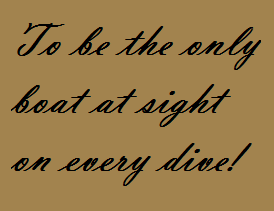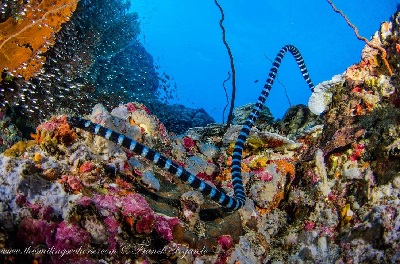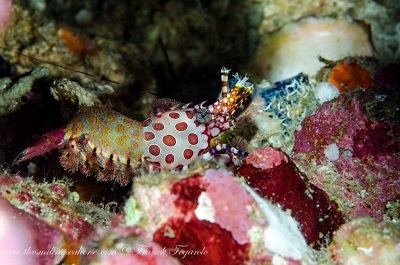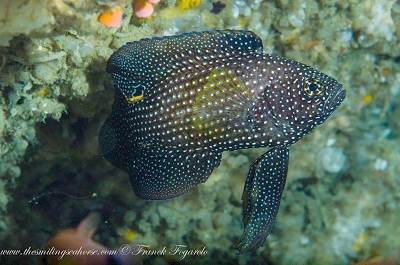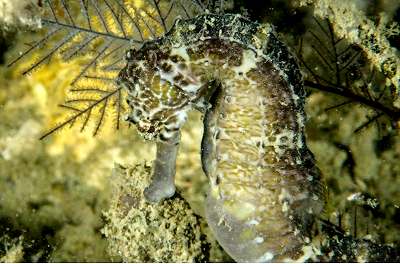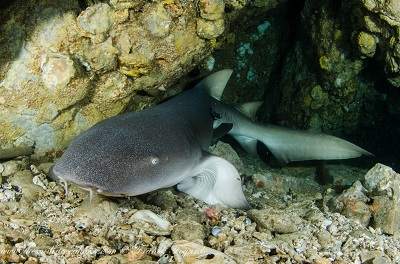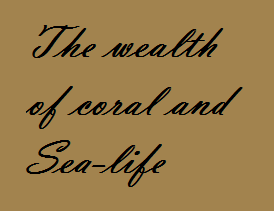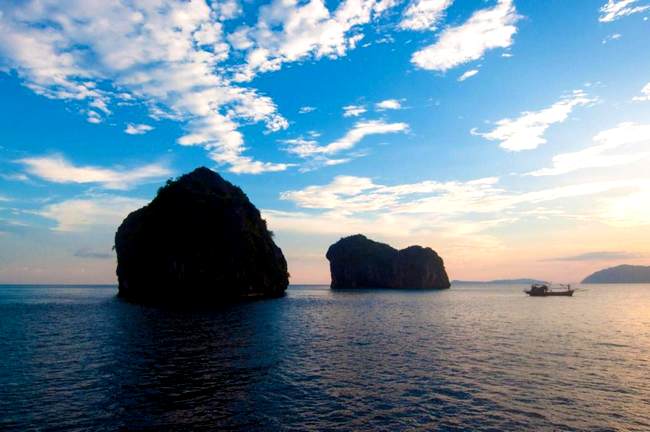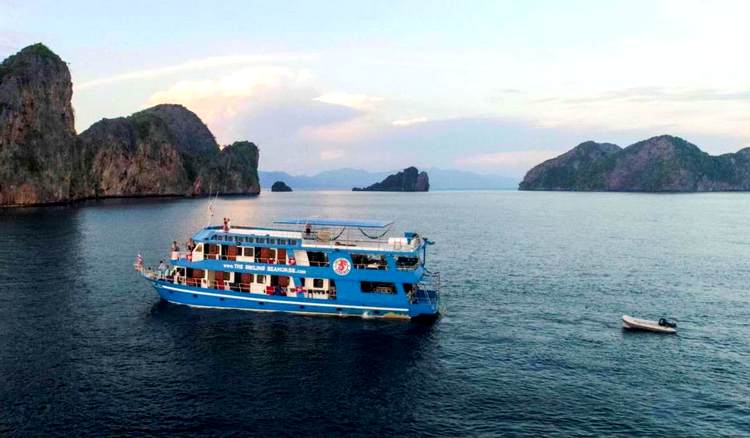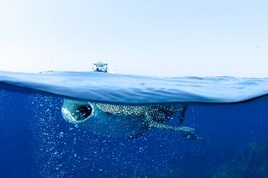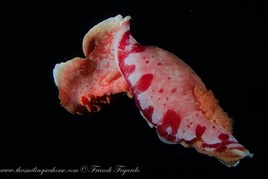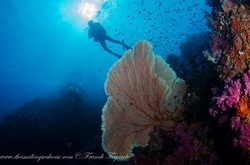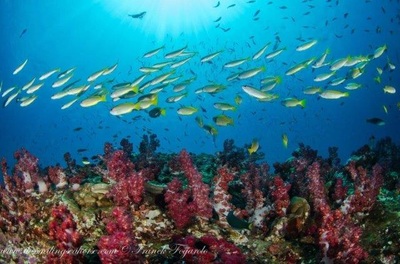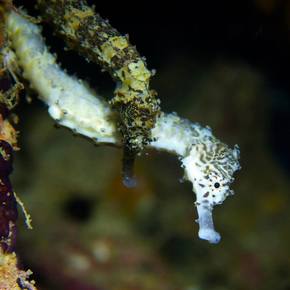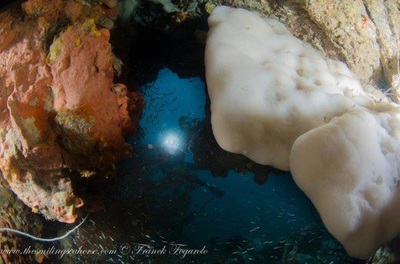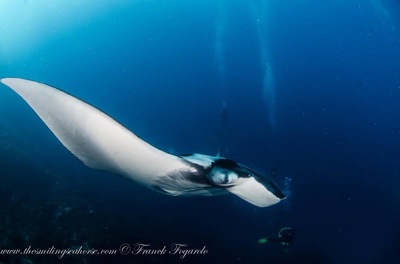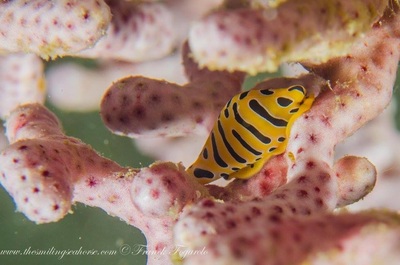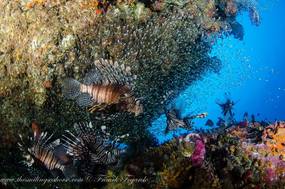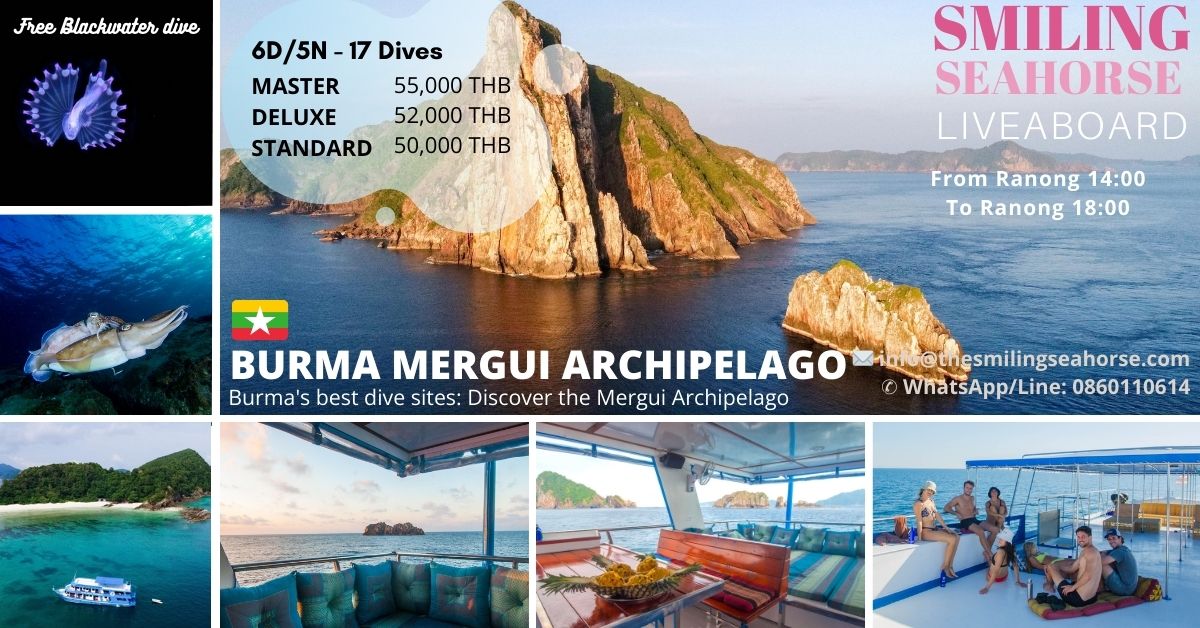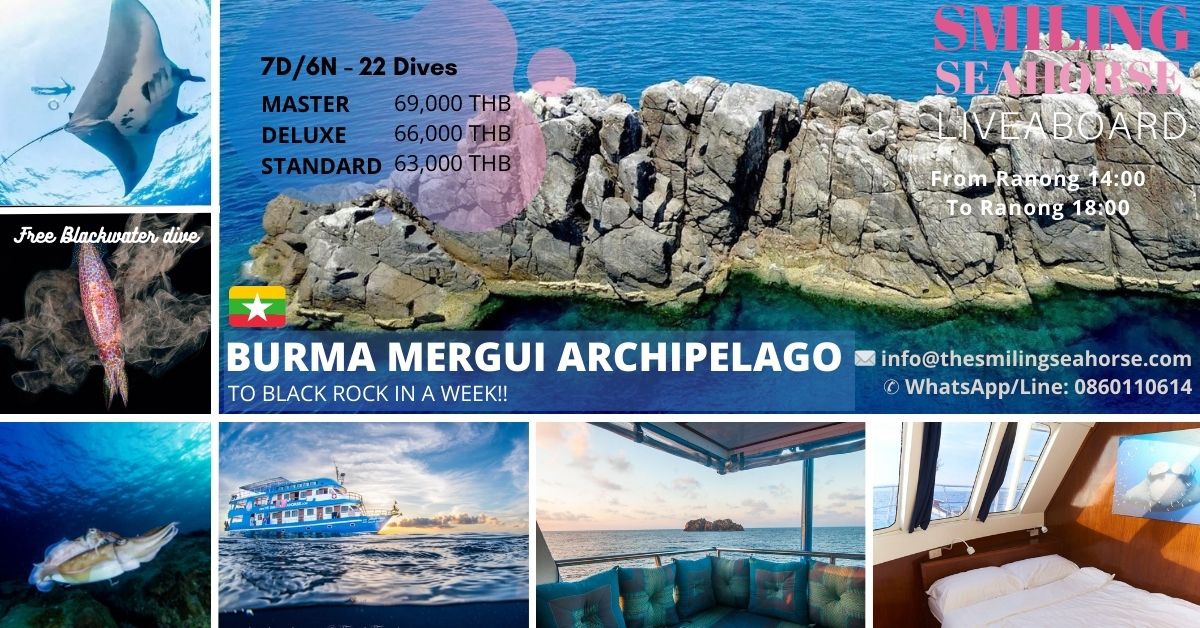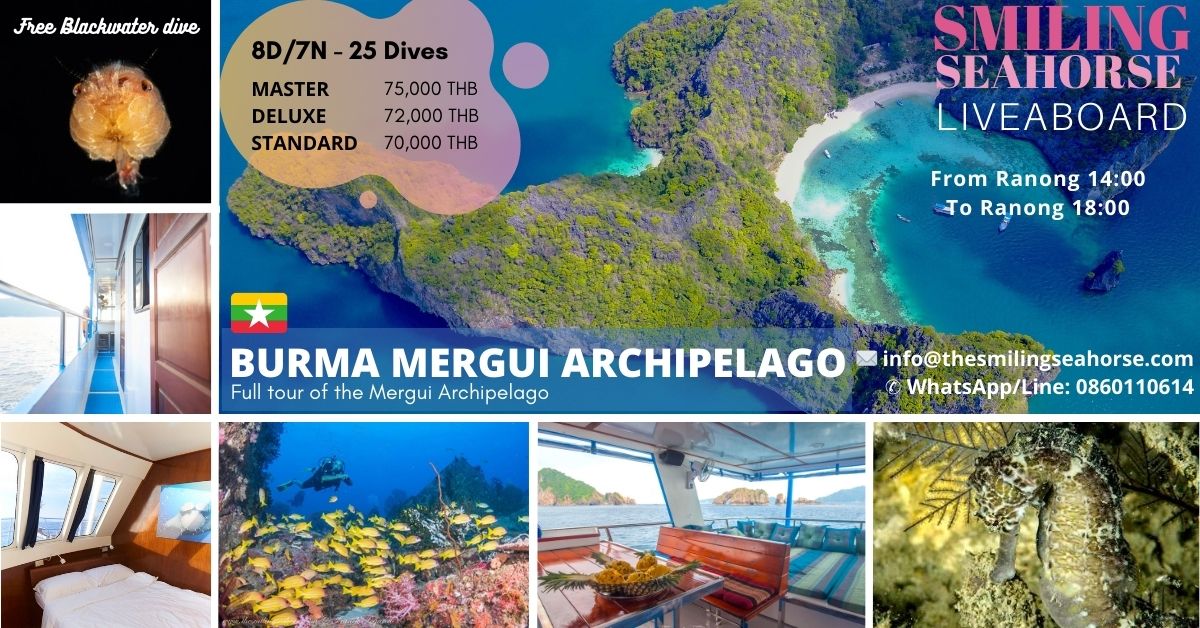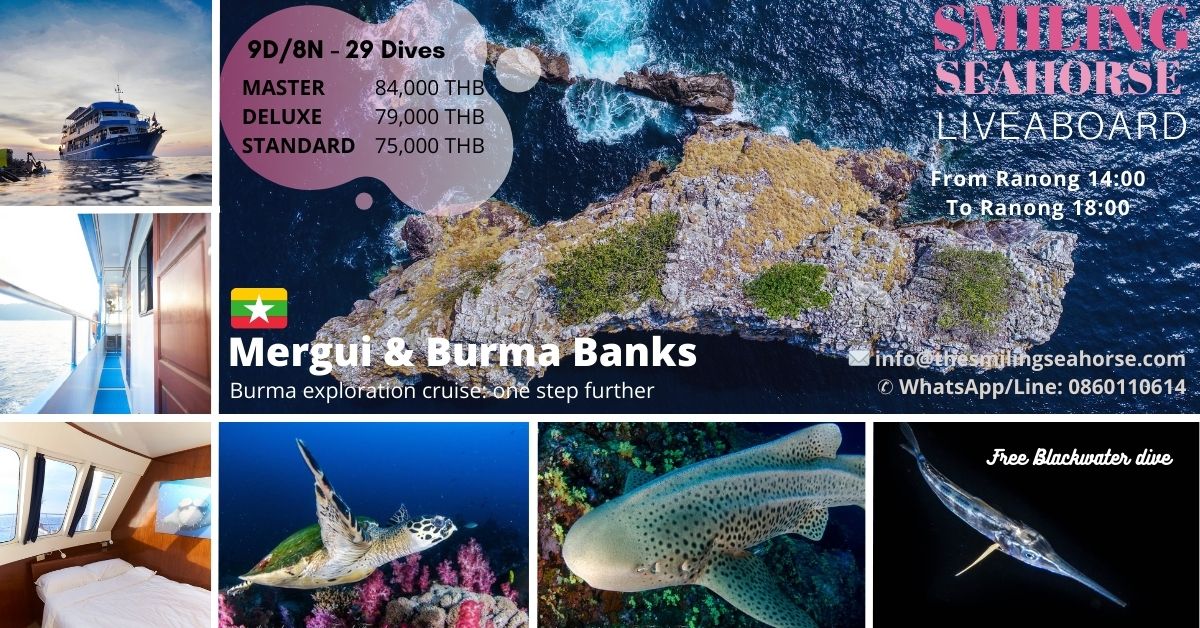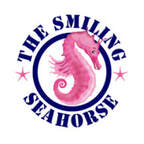Diving in Myanmar: the ultimate guide to this off the beaten trail destination
Written by the specialists of scuba diving cruises to the Mergui Archipelago and the Burma banks
Myanmar diving liveaboards
The Myanmar's borders are now open!
Diving around Burmese islands: a new dive destination in Myanmar.
|
If you want the most unique Myanmar diving experience on the planet, then the Mergui Archipelago is the place for you. Myanmar's waters were closed off until 1997, which means that they are relatively unexplored and undiscovered by even some of the most seasoned divers. With gorgeous topography made of caves, soft and hard coral, incredibly rich wildlife and exclusive dive sites, it is diving like you’ve never experienced before.
|
Myanmar’s Mergui Archipelago offers over 800 islands sprinkled throughout 12,000 square kilometres of crystalline waters just begging to be discovered. Since the Burmese seas were opened to tourism, only a few boats have begun to appear, yet the islands remain almost entirely uninhabited save for the odd Burmese sea gypsies, the mokens.
Most divers who go to Burma seek the mysterious waters of the Mergui Archipelago. This off-the-beaten-path diving destination is made mostly from limestone (ensuring there are plenty of caves and tunnels) and a few granite pinnacles circled by a wide diversity of coral of every imaginable colour.
125 km offshore from the southern town of Kawthaung, the secrets of the Burma banks are waiting to be discovered. On the edge of the central myanmar continental shelf and hidden in the depths of international waters (in an economic zone claimed by Myanmar), lie a collection of undersea mountains little known to humans.
Diving Myanmar gives you the possibility to run into species like manta rays, barracudas, frog fish, crabs of all types (spider crabs, decorative crab, sponge crab...) seahorses, and every type of shrimp including one of our favourites, the elusive harlequin shrimp. Different kinds of sharks also populate the area and often swim alongside giddy divers. The reefs in the area are also quite impressive not only because of their sheer beauty, but also because of their size: some reefs can be as large as a small house!
The best time of the year to embark on a Myanmar diving safari is between November and May, the rest of the year is when the monsoon rains roll in and can present very rough seas.
Find out more about the best dive sites in Burma
Most divers who go to Burma seek the mysterious waters of the Mergui Archipelago. This off-the-beaten-path diving destination is made mostly from limestone (ensuring there are plenty of caves and tunnels) and a few granite pinnacles circled by a wide diversity of coral of every imaginable colour.
125 km offshore from the southern town of Kawthaung, the secrets of the Burma banks are waiting to be discovered. On the edge of the central myanmar continental shelf and hidden in the depths of international waters (in an economic zone claimed by Myanmar), lie a collection of undersea mountains little known to humans.
Diving Myanmar gives you the possibility to run into species like manta rays, barracudas, frog fish, crabs of all types (spider crabs, decorative crab, sponge crab...) seahorses, and every type of shrimp including one of our favourites, the elusive harlequin shrimp. Different kinds of sharks also populate the area and often swim alongside giddy divers. The reefs in the area are also quite impressive not only because of their sheer beauty, but also because of their size: some reefs can be as large as a small house!
The best time of the year to embark on a Myanmar diving safari is between November and May, the rest of the year is when the monsoon rains roll in and can present very rough seas.
Find out more about the best dive sites in Burma
The best way to go diving in Burma: liveaboard Diving trips
|
In Myanmar, diving is almost entirely accessed by live-aboard boats, which offer the most effective means of exploring the outer reaches of the Mergui Archipelago.
Myanmar cruise boats depart from Ranong in Thailand or Kawthoung in Myanmar. Ranong itself is home to various natural attractions. It is blessed with hot springs, unspoiled mangrove forests and gorgeous little islands. It makes a great base for a few days of relaxing and exploring before joining your liveaboard dive trip in Burma. |
GET AWAY FROM THE CROWD ON OUR LIVEABOARD IN BURMA!
What can you see when diving in Myanmar?
|
|
Divers are spoiled for choice in Burma’s virgin waters.
Mantas, dolphins, blotched sting rays and Leopard sharks patrol the clear, calm waters. Little creatures enjoy equal billing to the big boys here; Lobsters, crabs (spider/sponge/porcelain), and shrimp (squat/mantis/tapestry/durban...) scurry around the sea floor providing plenty of action. Keen underwater photographers wont know where to point the camera first, with pipe fish (ghost/cleaner/spotted), frog fish, scorpion fish (stone/lions/leaf) nudibranch and seahorses all jostling for position against the coral heads and myriad colors of the untouched seabed. |
Where to go diving in Myanmar?
There are two main diving areas in Myanmar: The Mergui Archipelago and the Burma Banks.
The Mergui Archipelago is a paradise for soft coral and macro life, home to some of the best dive sites in Burma
The Mergui Archipelago has become extremely popular over the last few years attracting divers who wish to experience the diversity of its islands, and see a wide-array of marine life and corals. This diving paradise definitely offers something for every kind of diver. Diving in Myanmar provides an opportunity to catch a glimpse of species that cannot be found anywhere else on Earth.
If giant limestone rocks and complex topography are your thing, head over to points like Black Rock, a favorite Burma diving spot that is surrounded by steep banks; High Rock, a small island surrounded by a rocky reef; and Tower Rock, made up of giant walls decorated with corals and crustaceans.
If colour is what you’re looking for then spend some time exploring the soft coral and vibrant colours of Mc Leod Islands; or head to Sea fan Forest to witness a vast spectrum from giant sea fans at the bottom of the pinaccles to the beautiful purple coral carpeting the top.
Marine life is present throughout the archipelago but the three islets that make up Shark Cave are swarming with colourful and exciting species. if you love crustaceaus you will be thrilled with the variety including several different kinds of shrimp: the coolest, in our opinion being harlequin, Mantis and tapestry shrimp. You can also spot beautiful macro life like seahorses and ghost pipe fish. North Twin Island’s incredibly clear water also makes catching a glimpse of larger creatuers easier and more astonishing with regular sightings of eagle rays and giant mantas rays as well as big schools of barracudas.
On the opposite side, South Twin Island’s green grassy hills and large rock structures hide underneath long underwater passages that you can dive straight through. Western Rocky is not only the most southernmost dive site in the country but also one of its most unique. If you are a lover of heading deep within the mystery of underwater passages, then you will love the one that goes through the center of the island, letting you dive literally into its very heart.
More details on the best dive sites in Burma
The Mergui Archipelago is a paradise for soft coral and macro life, home to some of the best dive sites in Burma
The Mergui Archipelago has become extremely popular over the last few years attracting divers who wish to experience the diversity of its islands, and see a wide-array of marine life and corals. This diving paradise definitely offers something for every kind of diver. Diving in Myanmar provides an opportunity to catch a glimpse of species that cannot be found anywhere else on Earth.
If giant limestone rocks and complex topography are your thing, head over to points like Black Rock, a favorite Burma diving spot that is surrounded by steep banks; High Rock, a small island surrounded by a rocky reef; and Tower Rock, made up of giant walls decorated with corals and crustaceans.
If colour is what you’re looking for then spend some time exploring the soft coral and vibrant colours of Mc Leod Islands; or head to Sea fan Forest to witness a vast spectrum from giant sea fans at the bottom of the pinaccles to the beautiful purple coral carpeting the top.
Marine life is present throughout the archipelago but the three islets that make up Shark Cave are swarming with colourful and exciting species. if you love crustaceaus you will be thrilled with the variety including several different kinds of shrimp: the coolest, in our opinion being harlequin, Mantis and tapestry shrimp. You can also spot beautiful macro life like seahorses and ghost pipe fish. North Twin Island’s incredibly clear water also makes catching a glimpse of larger creatuers easier and more astonishing with regular sightings of eagle rays and giant mantas rays as well as big schools of barracudas.
On the opposite side, South Twin Island’s green grassy hills and large rock structures hide underneath long underwater passages that you can dive straight through. Western Rocky is not only the most southernmost dive site in the country but also one of its most unique. If you are a lover of heading deep within the mystery of underwater passages, then you will love the one that goes through the center of the island, letting you dive literally into its very heart.
More details on the best dive sites in Burma
The Burma Banks: correcting a misconception...
The Burma banks are surprisingly famous compared to the Mergui Archipelago, this is due to the fact that diving boats from Thailand where allowed to visit the Burma banks (in international waters) far earlier than they have been allowed in the rest of Mergui Archipelago. Some dive operators and magazines keep using this name in their communications to this day.
Burma banks were first visited between 1980's and 1990's and became the place to be for shark sightings.
The Burma banks are a network of large underwater mountains about 180 kilometers North West of the Similan islands. Far from the reaching tendrils of modern society and surrounded by deep blue water, it offers true open-ocean diving.
What's good about the Burma banks :
Those who venture into the Banks are rewarded with great visibility over giant underwater seamounts that can rise up to 15 meters below the water, all the way down to 300. It is very different from the diving you will find in Thailand and Mergui Archipelago because it is very remote and depths are much greater than in the more travelled areas. This also gives you a better chance to see some larger more evasive deep-sea species.
These factors also do present a pretty strong upside as it is the best spot in the region to dive with sharks: a lot of nurse sharks are seen here but some bigger/ rarer sharks were also spotted like the tiger shark and silvertip.
Why we don't often go to the Burma banks
Going so far offshore can be a treat but it is the furthest we venture which means it takes a whole night of crossing to reach the Burma banks . There are no other dive sites nearby so you need to spend the whole day there to make the journey worthwhile.
The fact that this area is so exposed and the 6 hour tidal change do make strong currents much more common here which requires a certain level of diving experience to be safe and responsible. We also recommend reef hooks on the days where it's particularly strong. The depth of the sites also limit bottom time for divers.
The marine life is very diverse here but if you are a macro freak, you may not be quite as enchanted with this area as the Mergui Archipelago. These 6 underwater mountains in the open sea are the place to be for pelagic megafauna and other migratory species.
Safety and suitability for our guests are our main focuses so we only go there during our longest cruise when the weather is flat and predictable.
The Burma banks are surprisingly famous compared to the Mergui Archipelago, this is due to the fact that diving boats from Thailand where allowed to visit the Burma banks (in international waters) far earlier than they have been allowed in the rest of Mergui Archipelago. Some dive operators and magazines keep using this name in their communications to this day.
Burma banks were first visited between 1980's and 1990's and became the place to be for shark sightings.
The Burma banks are a network of large underwater mountains about 180 kilometers North West of the Similan islands. Far from the reaching tendrils of modern society and surrounded by deep blue water, it offers true open-ocean diving.
What's good about the Burma banks :
Those who venture into the Banks are rewarded with great visibility over giant underwater seamounts that can rise up to 15 meters below the water, all the way down to 300. It is very different from the diving you will find in Thailand and Mergui Archipelago because it is very remote and depths are much greater than in the more travelled areas. This also gives you a better chance to see some larger more evasive deep-sea species.
These factors also do present a pretty strong upside as it is the best spot in the region to dive with sharks: a lot of nurse sharks are seen here but some bigger/ rarer sharks were also spotted like the tiger shark and silvertip.
Why we don't often go to the Burma banks
Going so far offshore can be a treat but it is the furthest we venture which means it takes a whole night of crossing to reach the Burma banks . There are no other dive sites nearby so you need to spend the whole day there to make the journey worthwhile.
The fact that this area is so exposed and the 6 hour tidal change do make strong currents much more common here which requires a certain level of diving experience to be safe and responsible. We also recommend reef hooks on the days where it's particularly strong. The depth of the sites also limit bottom time for divers.
The marine life is very diverse here but if you are a macro freak, you may not be quite as enchanted with this area as the Mergui Archipelago. These 6 underwater mountains in the open sea are the place to be for pelagic megafauna and other migratory species.
Safety and suitability for our guests are our main focuses so we only go there during our longest cruise when the weather is flat and predictable.
When to go for a Liveaboard in Myanmar?
Diving in Myanmar (Burma) is good from November till May with peak season from January till March. The water is at the coolest in December around 26 degree and gets to 28 degrees in April. Above the surface, the sea is usually flat from February till April with some wind and few waves at the beginning of the season and dry but warm climate in April.
We always find it hard to answer the question: when is the best time to visit, every one of the six month season has its particular merits. At the beginning of the season, you can see more cuttlefish mating for example and at the end a blossom of ghost pipefish. Whale Sharks and Mantas can be seen all season long with a bit more consistency toward the end of the season.
The rainy season is from May till October at which time the sea can be dangerous so we hang up our fins and take this time for annual maintenance and upkeep. We are reachable all year round but we do not venture out to sea in these months.
We always find it hard to answer the question: when is the best time to visit, every one of the six month season has its particular merits. At the beginning of the season, you can see more cuttlefish mating for example and at the end a blossom of ghost pipefish. Whale Sharks and Mantas can be seen all season long with a bit more consistency toward the end of the season.
The rainy season is from May till October at which time the sea can be dangerous so we hang up our fins and take this time for annual maintenance and upkeep. We are reachable all year round but we do not venture out to sea in these months.
WHY IS THE SMILING SEAHORSE BETTER FOR BURMA LIVEABOARD?
The best departure point: It takes us 20 minutes to get to Myanmar and clear immigration
The best dive guides : Because we dive Burma all the time, our dive guides are the most knowledgeable about the area
The best customer service: We love our job and it shows: we are on TripAdvisor Wall of Fame :)
The best food: Our cook excels in preparing Thai and European deli and our special barbecue feasts
The best liveaboard from Ranong : A new boat (2018), 16 divers max, 4 dive guides, cotton bed sheets, real coffee, large dive platform, plenty of space and relaxing corners, a photo room ...
The best equipment: New Mares and Scuba pro dive gear, 2 Bauer Compressors, everything is serviced or changed every season
Our cruises schedule?More about us?
If you have some questions about Diving in Burma, check our FAQ or contact us
The best dive guides : Because we dive Burma all the time, our dive guides are the most knowledgeable about the area
The best customer service: We love our job and it shows: we are on TripAdvisor Wall of Fame :)
The best food: Our cook excels in preparing Thai and European deli and our special barbecue feasts
The best liveaboard from Ranong : A new boat (2018), 16 divers max, 4 dive guides, cotton bed sheets, real coffee, large dive platform, plenty of space and relaxing corners, a photo room ...
The best equipment: New Mares and Scuba pro dive gear, 2 Bauer Compressors, everything is serviced or changed every season
Our cruises schedule?More about us?
If you have some questions about Diving in Burma, check our FAQ or contact us
Our Burma cruises
|
Our secret spot (nurse sharks in a large cave, Spanish dancers, seahorses)
Mc Leod Island (beautiful soft coral everywhere and loads of macrolife) Western Rocky (Cave/ lobsters/ rays/ sharks/ macro life) Seafan Forest (rays, leopard sharks, giant seafans) Volcano (for macro and exotic fishes: seahorses, pineapple/ comet... black tip sharks) |
Black Rock definitely one of the most famous dive site of the Andaman sea: chances to see 20 Mantas a at once and when they are not around there is so much macro life you could never get bored of this site.
(ghost pipe fish, seahorse, frog fish, tapestry shrimps, cuttle fish, yellow coral everywhere...) North and South Twin (Mantas and eagle rays, mantis shrimps, coral tables, schools or baracudas...) |
2 days at Western Rocky, definitely one of the most famous dive site of the Mergui Archipelago: chances to see a Whale Shark or an Eagle Ray.
There is also so much macro around. (ghost pipe fish, seahorse, frog fish, tapestry shrimps, cuttle fish, yellow coral everywhere...) |
This is our newest itinerary: on top of the 8D itinerary we will go one step further West toward the Burma Banks for some exploratory dives we hope to have some exceptional dives and you may be the first divers to explore some of these dive sites...
|
|
Included in prices above:
Accommodation in shared cabin (2 p/ cabin) Breakfast, Lunch, afternoon snack, Dinner All soft drinks, drinking water, filter coffee & tea Fresh fruits, yoghurt & snacks 12 Liter Alum. Cylinders, Weights & Weight Belt PADI Professional Dive Guide /4 divers Towels, reef friendly shower gel, shampoo, conditioner Sea kayak and hammock Dive lamps for night dives |
* You will have to apply for an E-visa for Myanmar, cost: 50$, port of entry: Kawthaung, link to apply
* Burmese entry and diving Fees . COMPULSORY IF YOU DON'T HAVE YOUR OWN: - PERSONAL INSURANCE (General Travel insurance is highly recommended) - Computer rental 300 THB/day - Equipment rental 600 THB/ day . OPTIONS: - 15L Tank 250 THB / day - Nitrox : 250 THB/tank or special package for all cruise - Private guide 3,000 THB/day - Optional Blackwater dive 500 THB/ dive . COURSES: - PADI Courses - Photographer private coaching . Transfers to and from the boat on-demand . Alcoholic drinks and cigarettes . Gratuity/ tips (1000 THB / day /pers is common practice) |

